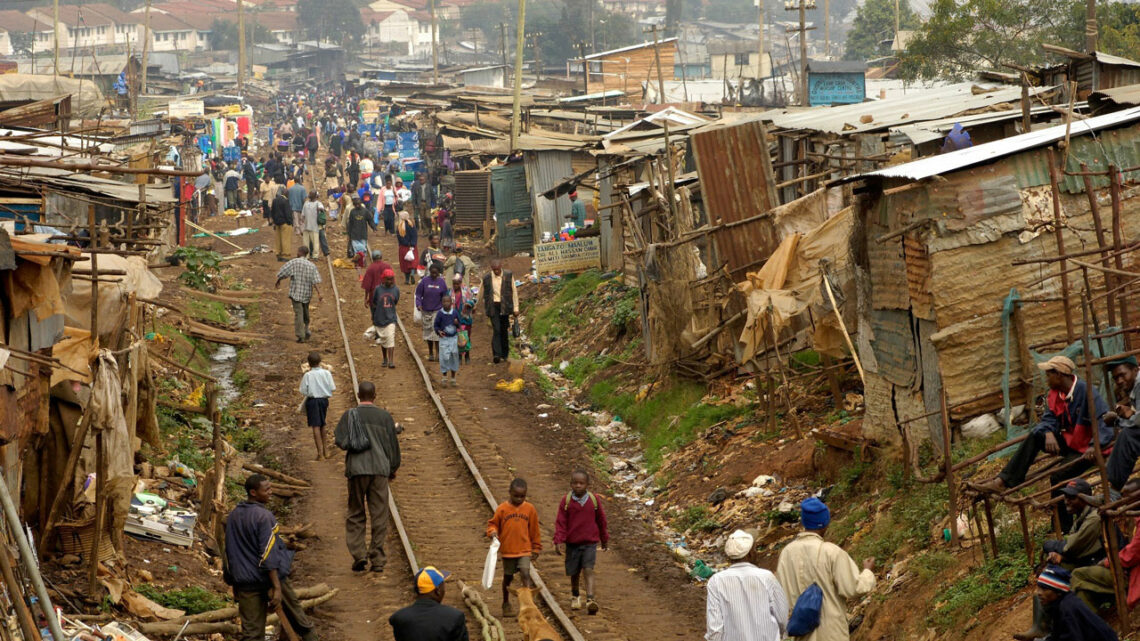Within just 10 years, Nigeria became Africa’s largest economy and has fallen to the continent’s fourth. Clearly, Nigeria is grappling with a perplexing paradox. Despite its immense natural resources, including vast reserves of oil and gas, fertile land, and a large workforce, the country is getting poorer. Poverty in Nigeria is rising at an alarming rate, with over half of its population living below the poverty line. This trend has worsened in recent years, leaving millions of Nigerians struggling to meet basic needs. The question that arises is: why is Nigeria getting poorer? The answer lies in a combination of factors, from poor governance and corruption to economic mismanagement, structural challenges, and global economic shifts.
One of the main drivers of Nigeria’s economic decline is poor governance and systemic corruption. Decades of mismanagement have eroded public trust and weakened institutions responsible for ensuring the equitable distribution of wealth. Public resources have been siphoned off by corrupt officials, leaving little for essential services such as healthcare, education, and infrastructure. Corruption in the oil sector, which accounts for a significant portion of Nigeria’s revenue, has further drained the country’s wealth. Billions of dollars that could have been invested in development projects or social safety nets have instead disappeared into private pockets. The result is a nation that, despite its riches, struggles to provide basic services to its citizens.
Economic mismanagement has also played a significant role in Nigeria’s decline. For too long, the country has relied heavily on oil exports, making its economy vulnerable to global oil price fluctuations. When oil prices plummeted in 2014, Nigeria’s economy went into a tailspin, triggering a recession from which the country has struggled to recover fully. The government’s failure to diversify the economy has left other sectors, such as agriculture and manufacturing, underdeveloped. While oil revenues have enriched a small elite, the majority of Nigerians remain disconnected from the wealth generated by the sector. The agriculture sector, which employs a large portion of the population, has been neglected, leading to low productivity and high levels of food insecurity.
Inflation has further exacerbated poverty in Nigeria. In recent years, inflation has soared, driven by rising fuel costs, supply chain disruptions, and the depreciation of the naira. The cost of basic goods and services, including food, has skyrocketed, pushing millions of Nigerians deeper into poverty. Nigeria’s inflation rate hit a 29-year high of 33 percent in July 2024, with food prices rising by over 40 percent. For a country where a significant portion of the population lives on less than $2 a day, this level of inflation has been devastating. Families are forced to make difficult choices between buying food, paying rent, or accessing healthcare, leading to increased hardship and social unrest.
Another factor contributing to Nigeria’s economic decline is its demographic pressure. With a population of over 200 million, growing at an annual rate of 2.6 per cent, Nigeria faces the challenge of providing enough jobs, services, and infrastructure to meet the needs of its citizens. Unfortunately, job creation has not kept pace with population growth, leading to high unemployment, especially among the youth.
Security challenges are also undermining Nigeria’s economic potential. The rise of insurgent groups, particularly in the northeast, has created instability and displaced millions of people. The ongoing conflict with Boko Haram, as well as banditry and kidnappings in other parts of the country, has disrupted agricultural production, trade, and investment. Many regions have become inaccessible due to violence, preventing farmers from cultivating their land or transporting goods to market. This has further strained Nigeria’s already fragile economy and worsened food shortages in conflict-affected areas.
Global economic shifts have also played a part in Nigeria’s economic struggles. The COVID-19 pandemic dealt a severe blow to the country, reducing oil demand and exacerbating existing economic challenges. The pandemic exposed the vulnerabilities of Nigeria’s overreliance on oil, as lockdowns and travel restrictions slashed global oil consumption. Furthermore, as other nations shift towards cleaner energy and reduce their dependence on fossil fuels, Nigeria’s oil-driven economy faces an uncertain future.
The global transition to renewable energy poses a long-term challenge for Nigeria, which must adapt its economy to thrive in a world that is moving away from fossil fuels.
In response to these challenges, the federal government has attempted various reforms, but their impact has been limited. The removal of fuel subsidies in 2023, aimed at reducing public debt and improving the efficiency of the oil sector, has resulted in sharp increases in petrol prices. While necessary for fiscal stability, these reforms have placed additional pressure on the population, as transportation costs have risen, further contributing to inflation. Similarly, efforts to diversify the economy have made slow progress, as key sectors like agriculture and manufacturing remain underdeveloped and underfunded.
The path forward for Nigeria requires bold leadership and a clear vision. Addressing corruption and improving governance must be at the top of the agenda. Strengthening institutions and ensuring accountability in the use of public funds will be crucial in rebuilding trust and promoting economic development. Diversifying the economy is equally important. By investing in agriculture, technology, manufacturing, and renewable energy, Nigeria can reduce its dependence on oil and create new opportunities for its growing population.
Nigeria’s growing poverty is not an inevitable outcome but the result of decades of mismanagement, corruption, and missed opportunities. By confronting these challenges head-on and implementing meaningful reforms, Nigeria can unlock its potential and provide a better future for its citizens.





